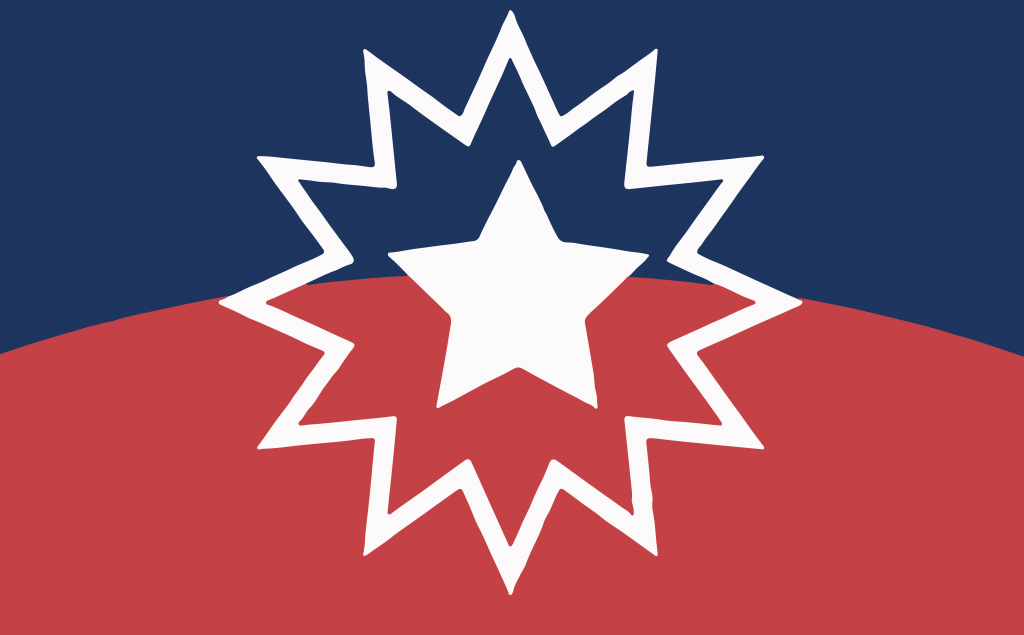
Join us in Celebrating Juneteenth
Juneteenth: Cupcakes and Conversations
- Date: Wednesday, 6/14/2023
- Time: 11 am – 2 pm
- Location: E-Breezeway and E-Auditorium
- Join us in celebrating Juneteenth! Stop by to eat red velvet cupcakes with strawberry soda, play games, network, and watch High on the Hog in the E-Auditorium.
Reflection Wall
What does Juneteenth mean to you?
Let’s Learn more about Juneteenth!
What is Juneteenth?
Juneteenth commemorates June 19, 1865 when enslaved people in Galveston, Texas heard the Emancipation Proclamation read aloud for the first time, despite being issued in Washington, D.C. two and a half years earlier. The holiday recognizes the moment when the last – rather than the first – enslaved people in the country were informed of their freedom. In 1865, there were an estimated 250,000 enslaved people in Texas. Many slave owners suppressed the news of emancipation until after the harvest, and some beyond that. This day is celebrated in Black communities across the United States through regional events and traditions.

The Juneteenth Flag
Juneteenth flag designer L.J. Graf packed meaning into her design: the colors red, white, and blue echo the American flag to symbolize that enslaved people and their descendants were Americans. The star in the middle pays homage to Texas, while the bursting “new star” on the “horizon” of the red and blue fields represents a new freedom and a new people.

National Recognition
Prior to 2021, Juneteenth was recognized as a state holiday or special day of observance in 45 states. On June 17, 2021, Juneteenth became a recognized federal holiday when the President signed the Juneteenth National Independence Day Act into law. About 80 members of Congress, community leaders, local officials and activists, including 93-year-old Opal Lee, who is known as the “grandmother of Juneteenth,” attended the White House signing ceremony.

Emancipation Parks
After the Civil War, segregation laws made public Juneteenth celebrations difficult for Black Americans, but formerly enslaved people pooled their money to purchase land throughout Texas, which still exist today as Emancipation Parks.

Right photo: Thomas White and other members of the organization that sought to purchase Emancipation Park in Austin, Texas.
Middle photo: A Juneteenth Concert in Houston, Texas.
Left photo: A band at the 1900 Juneteenth celebration at Eastwoods Park.
The Juneteenth Table
Juneteenth celebrations include picnics, rodeos, street fairs, cookouts, family reunions, park parties, historical reenactments, blues festivals, and Miss Juneteenth contests. Red food and drinks are traditional during the celebrations, including red velvet cake and strawberry soda, with red meant to represent resilience and joy.

“When you understand your history and understand where you come from, that understanding gives you purpose. And the purpose to carry on their story I think is such a huge honor.”
Jerrelle Guy
Author of Black Girl Baking

“…As this milestone becomes increasingly well known, I really hope that when we hear about our freedom being given to us or announced, that we also don’t minimize or erase our own participation in our own freedom.”
Stephen Satterfield
Food Writer and Producer

“We don’t reflect on why we’re able to celebrate. For example, how many people died trying to bring the news of the Emancipation Proclamation to Texas, where Juneteenth was first celebrated?”
Matthew Raiford
Author of Bress’n’Nyam

“Black joy often emanates from Black sorrow, and so it has been with that small Texas tendril of freedom, which has continued to spread and strengthen.”
Nicole A. Taylor
Author of Watermelon & Red Birds
Library Resources
Below are some highlights from the L.W. Tyree Library and Learning Commons collections that focus on Juneteenth and the Black struggle for freedom in the United States. The following books are available for SF students to check out at the SF Library:

Left to right: “Juneteenth” by Ralph Ellison, “On Juneteenth” by Annette Gordon-Reed, “Emancipation Betrayed” by Paul Ortiz, “Juneteenth Texas: Essays in African American Folklore” by Francis E. Abernethy, Patrick B. Mullen, & Alan, B. Govenar, and “Juneteenth for Mazie” by Floyd Cooper.
Local Celebrations

Florida’s Emancipation: Celebrating our Ancestors
9 a.m.-3 p.m. Sat., May 20 at the Cotton Club Museum and Cultural Center
The History of the Seminole Nation: Unchained and Unconquered
6-9 p.m. Sun., June 4 at Oak View Park
Juneteenth Film Festival
5:30-9:30 p.m. Sat., June 10 at the A. Quinn Jones Museum & Cultural Center
Smooth Flava Gainesville
11 a.m.-3 p.m. Sun., June 11 at Bo Diddley Plaza
Storytime at Depot Park
10:30-11 a.m. Thurs., June 15 at Depot Park
Juneteenth: Rejoice, Reflect, Remember
12-8 p.m. Thurs., June 15 at the Santa Fe College Blount Center
Freedom Walk 5K
7-11 a.m. Sat., June 17 at Depot Park
Freedom Fest 2023
4-9 p.m. Sat., June 17 at Bo Diddley Plaza
Reaching Back to Move Forward
10 a.m.-2 p.m. Mon., June 19 at the Alachua County Administration Bldg
Local Black History
Learn more about Black History in North Central Florida through these local organizations:

Alachua County African & African American Historical Society

African American History Project

The Cotton Club Museum and Cultural Center, Inc.

The Real Rosewood

Samuel Proctor Oral History Program
Lift Every Voice and Sing
Lift Every Voice and Sing is a hymn with lyrics written by writer and civil rights activist James Weldon Johnson. “Lift Every Voice and Sing” was first recited by a group of 500 students in Jacksonville in 1900. His brother J. Rosamond Johnson would later set the poem to music. The NAACP began to promote the hymn as a “Negro national anthem” in 1917 (with the term “Black national anthem” similarly used in the present day).
“Sing a song full of the faith that the dark past has taught us,
Sing a song full of the hope that the present has brought us”


